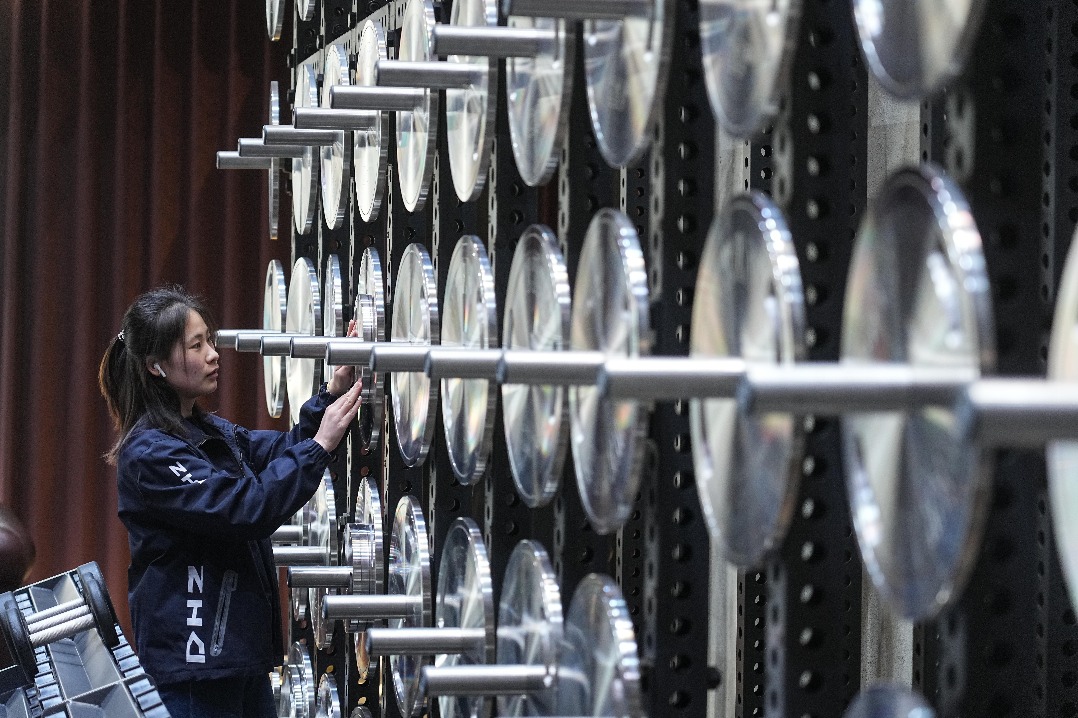China's long game: building economic resilience in a volatile world


BEIJING -- With crippling trade tariffs, surging corporate costs and increasing market volatility, the convergence of tensions and disruptions in 2025 has clouded the global economic outlook, posing a profound test to the fortitude of economies worldwide.
Against this backdrop of profound uncertainty, where stability has become a precious commodity, China's economy emerges as a notable exception. Up 5.3 percent year-on-year in the first half of 2025 and contributing an estimated 30 percent to global expansion -- while many developed nations struggle to reach an annual growth of 2 percent -- it serves as a critical anchor for growth.
Such resilience is not a product of chance. It is the outcome of long-term thinking employed to navigate what China's leadership terms "changes unseen in a century." It is not a story of frequent, short-term crisis interventions, but of a deliberate, patient cultivation of structural resilience rooted in resolve.
PLAN AND DELIVER
China's strategy echoes the ancient wisdom of Sun Tzu, who wrote 2,500 years ago: "The good fighters of old first put themselves beyond the possibility of defeat." This philosophy of proactively mitigating risks is key to understanding China's grand economic strategy as a seasoned navigator of uncertainty.
The International Monetary Fund this week raised its 2025 growth forecast for China's economy to 4.8 percent, up significantly from the fund's 4 percent estimate in April, partly due to stronger-than-expected activity in the first half of 2025.
China's economic resilience, as manifested in 2025, is deeply rooted in its tradition of long-term, strategic planning, embodied by the 14th Five-Year Plan (2021-2025). A key feature of this plan is the emphasis on innovation-driven and high-quality development, which has played a pivotal role in helping the Chinese economy withstand internal and external shocks. By prioritizing quality over quantity, innovation over imitation, and resilience over reliance, China has long been prepared for crises beyond the horizon.
What makes China's planning remarkable is not just its vision, but its ability to deliver. The consistent achievement of these targets, demonstrated by, for example, surpassing milestones in new energy, digital infrastructure, and industrial upgrading, has created a strong, flexible foundation for the economy.
"China's resilience largely comes from the long-term objectives. Of course, there are pragmatic adaptations, but no hectic reactions that would create a bubble or stop-and-go effects," said Denis Depoux, global managing director of Roland Berger, a Munich-based consultancy.
While some analysts might have expected more massive support to the economy, the long-term objectives tell the truth and set a direction of continuous improvement, rather than short-term artificial support, Depoux told Xinhua in a recent interview.
Tom Fowdy, a British political and international-relations analyst, noted that the foundations of the Chinese economy are more robust than what they are given credit for, which is largely the product of years of approaches that have emphasized long-term stability rather than rapid, unsustainable growth.
"China's leadership has sought to prepare the domestic economy to more readily withstand external shocks, as part of what was described as 'dual circulation' several years back," Fowdy wrote in an opinion piece in the China Daily.
Since 2020, China has taken concrete steps to expand its domestic demand, positioning consumption as a fundamental driver of economic growth. These efforts have helped the economy maintain an average annual growth rate of 5.5 percent over the past four years, despite global volatility. On average, domestic demand contributed 86.4 percent to that growth.
Wednesday's Communist Party of China Central Committee Political Bureau meeting set economic priorities for this year's second half while preparing for October's plenary session, which will study the proposals for formulating the 15th Five-Year Plan (2026-30) for national economic and social development.
Analysts highlighted the meeting's significance in balancing immediate needs with long-term vision. This comprehensive approach helps buffer against external shocks and provides stability to the global economy amid rising uncertainty, protectionism and geopolitical tensions, contrasting with many Western economies that have shifted between policy extremes.
China's structural strengths have not only ensured the successful implementation of current development goals but also established a comprehensive framework for the forthcoming 15th Five-Year Plan (2026-30), said Liu Chunsheng, an associate professor at the Beijing-based Central University of Finance and Economics.




































